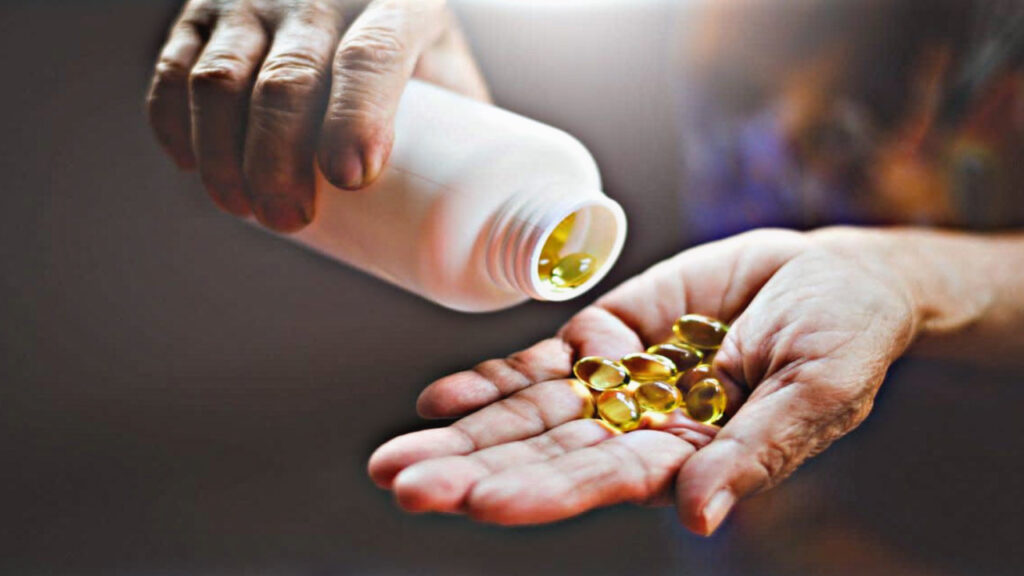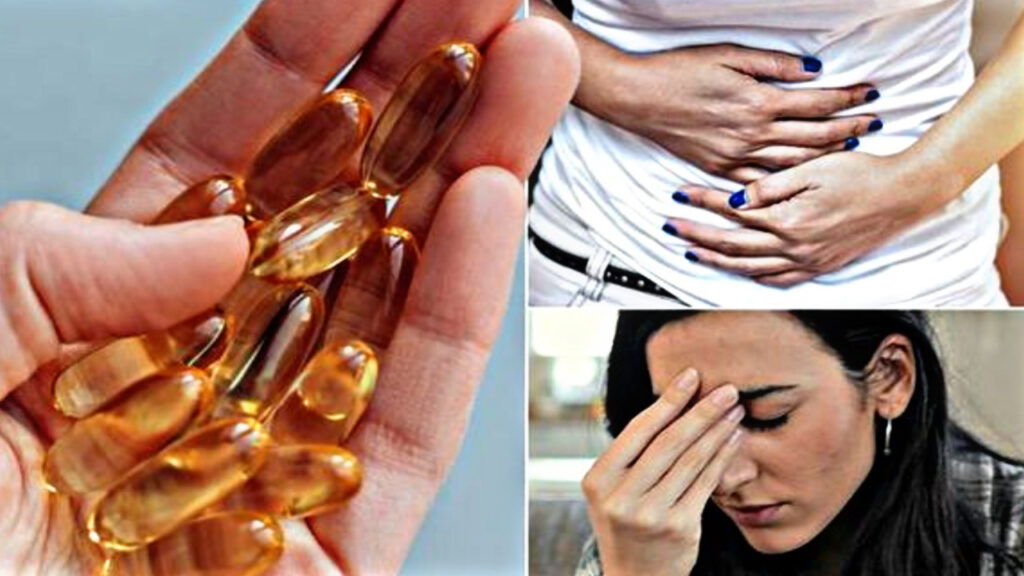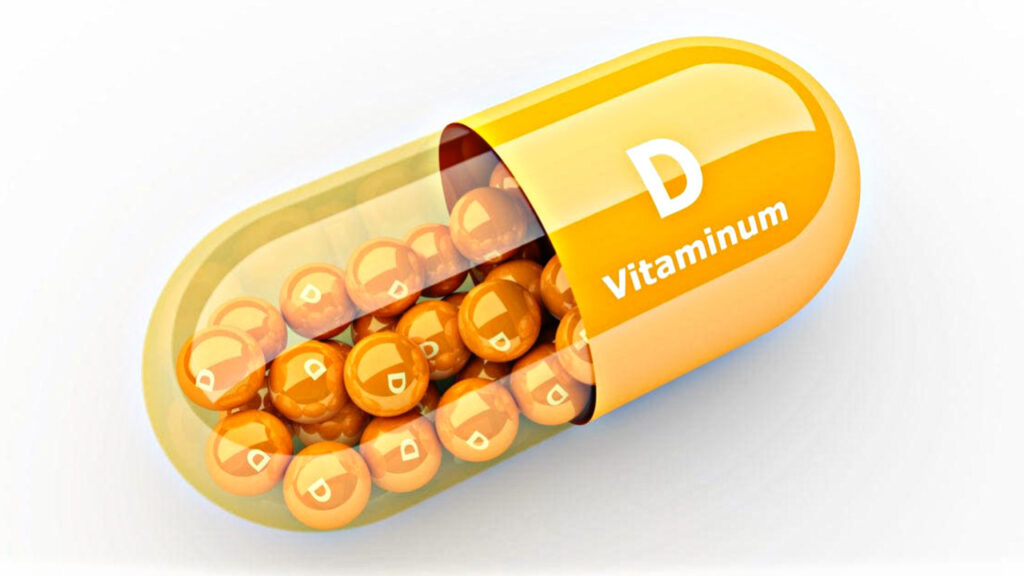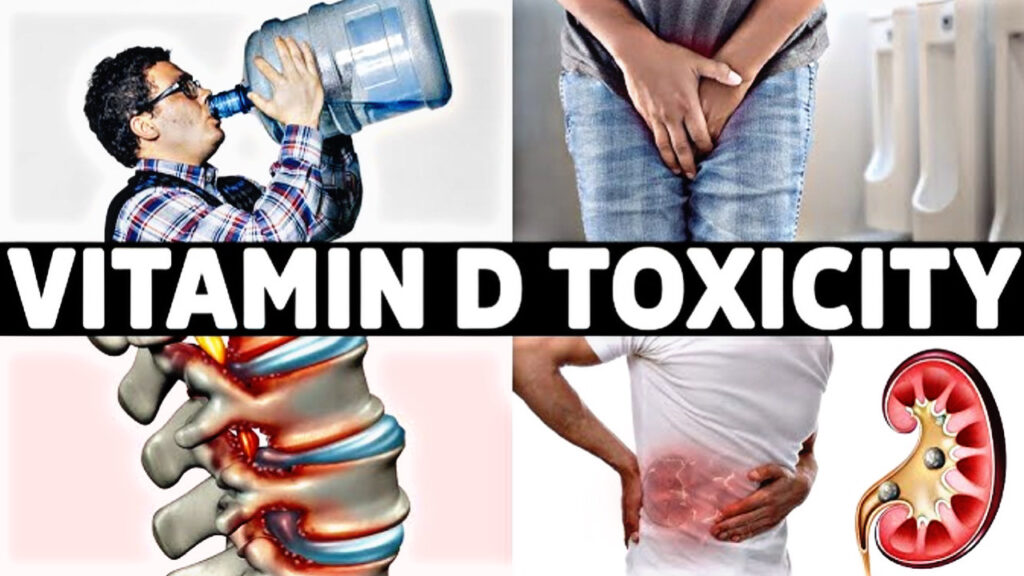Vitamin D
Vitamin D is an essential nutrient that plays a crucial role in maintaining bone health, supporting immune function, and regulating calcium levels in the body. It can be obtained through sun exposure, certain foods, and supplements. While it is vital for overall health, too much vitamin D can lead to toxicity, potentially causing serious damage to organs such as the liver and kidneys. Here’s a closer look at how excessive vitamin D can harm your body and how you can recognize the symptoms of toxicity.

The Role of Vitamin D in the Body
Vitamin D helps your body absorb calcium, which is crucial for bone formation and health. It also supports your immune system and plays a role in reducing inflammation. Normally, the body produces enough vitamin D through sunlight exposure. However, dietary sources like fortified foods, fatty fish, and supplements can also contribute to your daily intake.
In most cases, vitamin D toxicity doesn’t occur from sunlight exposure or diet alone. The main risk arises from taking large doses of vitamin D supplements over a prolonged period without medical supervision.
What Happens When You Have Too Much Vitamin D?

Vitamin D toxicity, also called hypervitaminosis D, typically occurs when blood levels of vitamin D are excessively high. The main danger of this condition is that it leads to an overload of calcium in the bloodstream, known as hypercalcemia. Elevated calcium levels can have harmful effects on various organs, particularly the kidneys and liver.
1. Kidney Damage:
When calcium levels become too high, the kidneys are put under stress. The kidneys play a crucial role in filtering out excess calcium, but an overload can lead to kidney stones, reduced kidney function, and in severe cases, kidney failure.
2. Liver Damage:
The liver is responsible for processing vitamin D, and excessive amounts can lead to liver toxicity. Symptoms may not be immediately obvious but can manifest as liver inflammation or more serious liver damage if left unchecked.
Symptoms of Vitamin D Toxicity

Recognizing the symptoms of vitamin D toxicity early is essential for preventing long-term damage. Some of the most common signs include:
- Nausea and Vomiting:
Excessive vitamin D levels can cause nausea, vomiting, and general digestive upset. This is one of the early warning signs of toxicity. - Weakness and Fatigue:
Feeling unusually tired or weak is another common symptom. The body struggles to function properly with high levels of calcium, leading to fatigue. - Frequent Urination or Dehydration:
Excess calcium in the bloodstream can lead to excessive urination, resulting in dehydration. This may cause dry mouth, thirst, and lightheadedness. - Pain in Bones and Muscles:
While vitamin D is essential for bone health, too much of it can cause pain and discomfort in the bones and muscles, as elevated calcium can lead to mineral imbalances. - Confusion or Cognitive Dysfunction:
Hypercalcemia can affect the nervous system, leading to confusion, memory issues, or even disorientation in severe cases. - Kidney Stones and Renal Problems:
High calcium levels can lead to the formation of kidney stones, which may cause pain in the lower back or abdomen. In some cases, kidney function may decline, which could be potentially dangerous.
Prevention and Treatment

To prevent vitamin D toxicity, it’s essential to follow the recommended dosage of vitamin D supplements, which is typically 600-800 IU for most adults, though it may vary based on individual needs. If you are taking higher doses of vitamin D, regular monitoring of blood levels is advised. In cases of vitamin D toxicity, treatment usually involves stopping supplementation and lowering calcium intake to prevent further harm to the liver and kidneys.
If you suspect that you may have vitamin D toxicity, it’s crucial to consult with a healthcare provider immediately. Early diagnosis and appropriate treatment can prevent significant damage to vital organs.
While vitamin D is essential for health, too much of it can be harmful, especially for your liver and kidneys. By recognizing the symptoms of vitamin D toxicity early, you can take action to protect your health. Always consult with a healthcare professional before starting or adjusting your vitamin D supplementation to avoid complications.





